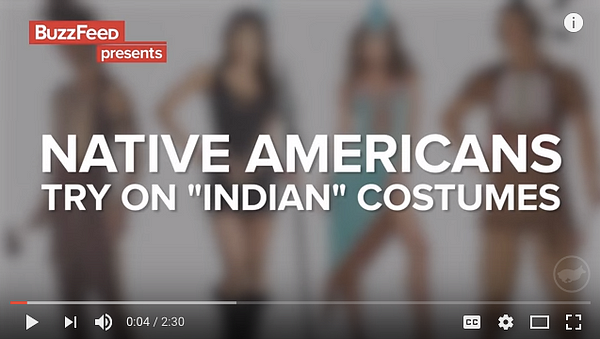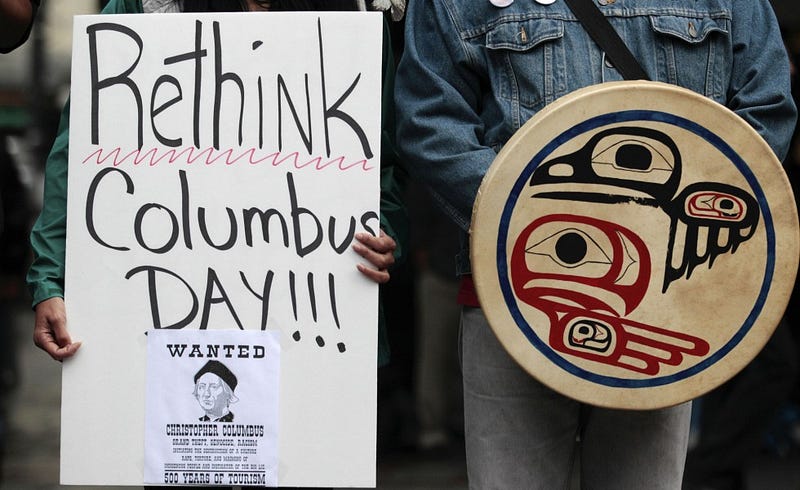Today is Columbus Day, a celebration of colonialism wrapped up under the guise of exploration. Children around the US are taught that European settlers came in 1492 and found a whole new land magically free for occupation. In November, they will be told that there were small and disperse savage populations who opened their arms to white settlers fleeing oppression. Some of those students may eventually learn on their own about violence, genocide, infection, containment, relocation, humiliation, family separation, and cultural devaluation which millions of Native peoples experienced over centuries.

Later this month, when everyone is excited about goblins and ghosts, thousands of sexy Indian costumes will be sold, prompting young Native Americans to cringe at the depictions of their culture and community. Part of the problem is that most young Americans think that Indians are dead or fictitious. Schools don’t help — children are taught to build teepees and wear headdresses as though this is a story of the past, not a living culture. And racist attitudes towards Native people are baked into every aspect of our culture. Why is it OK for Washington’s football team to be named the Redskins? Can you imagine a football team being named after the N-word?
Historically, Native people sit out Columbus Day in silence. This year, I hope you join me and thousands others by making a more active protest to Change what people learn!

In 2004, the Smithsonian’s National Museum of the American Indian was opened on the Mall in Washington DC as a cultural heritage institution to celebrate the stories of Native people and tell their story. I’m a proud trustee of this esteemed institution. I’m even more excited by upcoming projects that are focused on educating the public more holistically about the lives and experiences of Native peoples.
As a country, we’re struggling with racism and prejudice, hate that is woven deep into our cultural fabric. Injustice is at the core of our country’s creation, whether we’re talking about the original sin of slavery or the genocide of Native peoples. Addressing inequities in the present requires us to come to terms with our past. We need to educate ourselves about the limits of our understanding about our own country’s history. And we need to stop creating myths for our children that justify contemporary prejudice.
On this day, a day that we should not be celebrating, I have an ask for you. Please help me and NMAI build an educational effort that will change the next generation’s thinking about Native culture, past and present. Please donate a multiple of $14.91 to NMAI: http://nmai.si.edu/support/membership/ in honor of how much life existed on these lands before colonialist expansion. Help Indian nations achieve their rightful place of respect among the world’s nations and communities.
